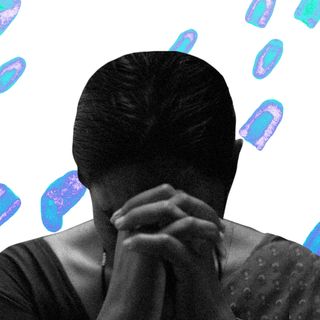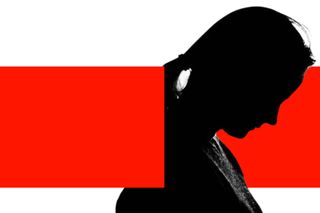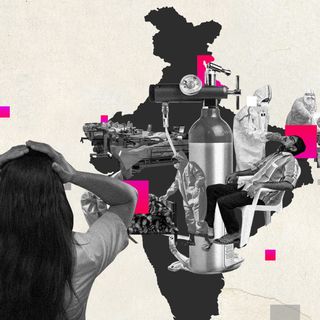
Why ‘Asperger’s Syndrome’ Is No Longer An Official Diagnosis
While many think ‘Asperger’s’ was retired due to the inventor’s Nazi links, the decision was a result of growing research on the autism spectrum.

This weekend, Elon Musk shared his Asperger’s diagnosis in front of a live audience on Saturday Night Live — evoking mixed reactions from the autistic community even as the audience on the show applauded his revelation.
A part of the autistic community is worried Musk, the owner of Tesla Motors, might lead his stereotypical privileges of being a white, cis, billionaire male to eclipse public perceptions of autism, which already suffers from a lack of empathy and support. Commonly-held views about autism translate into lack of accommodations for autistic people, more and debilitatingly so, when they are at the intersections of gender, class, and social hierarchies.
At the same time, a section of the community is also worried about Elon Musk dominating and swaying conversations on autism, an assumption within the realm of possibilities given his celebrity stature and mass appeal. And in doing so, he might steer his audience in an ableist direction — for instance, by propagating his belief that autism can be ‘solved’ — undoing decades of activism by autistic people. Some members of the community believe his views are colored by his lack of understanding of not only the issues less-privileged individuals on the spectrum face, but also of emerging research on autism — which is, perhaps, also the reason behind his usage of the term ‘Asperger’s.’
‘Asperger’s syndrome’ — characterized by challenges in social interaction, inflexibility to routines, delays in processing information, and deep, narrow areas of interest — stopped being an official diagnosis in 2013 when the latest edition of the Diagnostic and Statistical Manual of Mental Disorders, commonly known as the DSM-5, simply folded the term within the autism spectrum, along with a range of other ‘disorders.’
The reason behind the reclassification of Asperger’s syndrome was its similarity to autism, and the fact that it was distinguished from the latter based simply on a lack of language and cognitive delay — which, interestingly, isn’t something every individual on the spectrum experiences. So, the lack of well-defined boundaries between the two, as well as emerging research (at the time) equating them, resulted in the absorption of Asperger’s into the autism spectrum with the intention to avoid clinical confusion. “There is widespread agreement that autism is a spectrum that varies among different individuals and even within individuals during their lifetime… [the idea is] to ensure that individuals are described in terms of their specific pattern of needs, rather than fitting them into narrow categories…,” Francesca Happé, a professor of cognitive neuroscience at King’s College London in the U.K., wrote in Spectrum News.
Related on The Swaddle:
I Self‑Diagnosed My Autism Because Nobody Else Would. Here’s Why That Needs to Change.
“For years, studies have been suggesting that autism and Asperger’s syndrome are the same condition, differentiated only by level of impairment… My brother, for example, clearly has some form of autism, but could fit both diagnoses equally well. Therefore, it does seem to be a positive move,” Joshua Muggleton, a clinical psychologist, who is also autistic, wrote in The Guardian. However, like many others who received an Asperger’s diagnosis before 2013, he does continue to call himself an ‘Aspie’ because, according to him, it helps laypeople get a more accurate grasp on who he is. At the same time, others have adopted the term ‘spectrumite’ to reflect the diagnostic shift.
However, the term is controversial for its Nazi ties too. Hans Asperger, the Austrian pediatrician the condition is named after, was part of the Nazis’ eugenics program that sought to cleanse society of ‘genetically inferior’ people. “…for Asperger, those on the ‘favorable’ side of his autistic ‘range’ could be taught ‘social integration’ and even be recognized for ‘special abilities,'” Edith Sheffer, a historian specializing in modern European history, wrote in Time. “They were to be given first-rate care… [Others] described as ‘severely autistic,’ were to be killed.”
Moreover, as Sheffer, who also has an autistic son, wrote in Scientific American, “I agree with the reclassification of the Asperger’s diagnosis… the subdivisions never made sense for my son, and got in the way of his care.” While she doesn’t describe how the classification harmed her son, it could have been a result of Asperger’s being synonymous with “high-functioning autism,” which can result in lesser support.
In fact, in recent years, researchers have criticized the usage of labels like “high-functioning,” based on how the person appears, rather than how easy or difficult it is for them to navigate the world, for further strengthening the resistance against accommodating the invisible challenge that autism presents in a neurotypical society.Nazi ties and DSM-criteria aside, this is probably yet another nail in the coffin of the terminology around Asperger’s syndrome.
“For an eponymous diagnosis, Asperger merits neither the credit nor the honor… Hopefully, as research progresses, we will develop a more appropriate vocabulary [for distinctions within the spectrum]. In the meantime, we can affect a positive change by no longer invoking Asperger’s name,” Sheffer concluded.
In the meantime, people on the spectrum can only hope Musk’s revelation doesn’t serve to perpetuate more stereotypes about the community, or somehow alienate them further.
Devrupa Rakshit is an Associate Editor at The Swaddle. She is a lawyer by education, a poet by accident, a painter by shaukh, and autistic by birth. You can find her on Instagram @devruparakshit.
Related


How I Have Sex: ‘The Physical Pain From Lupus Used To Prevent Me From Having Sex’
